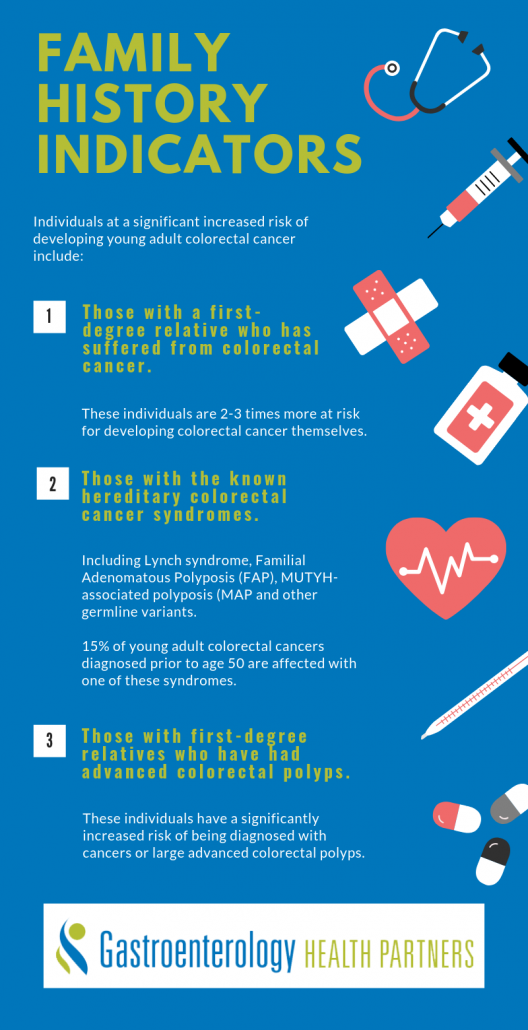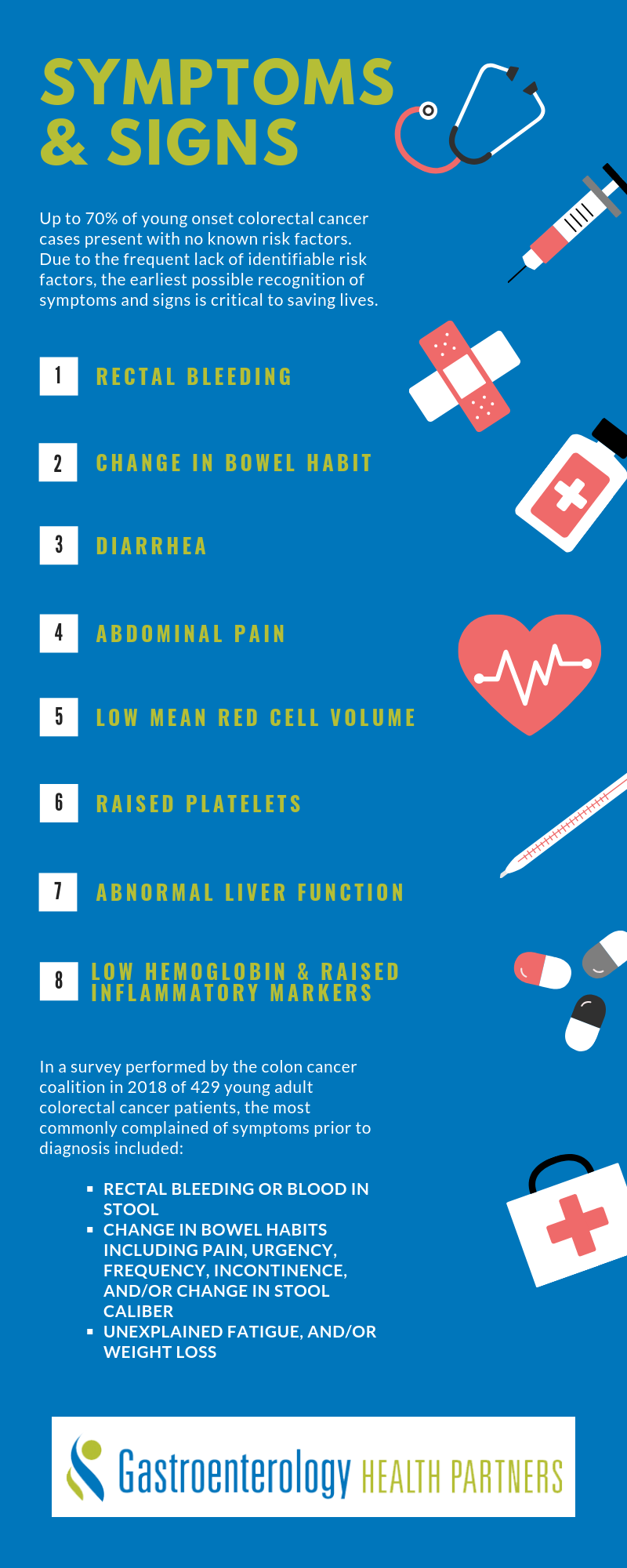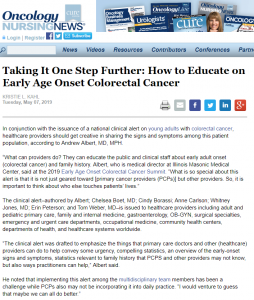National Clinical Alert Part 3: Preventing Young Adult Colorectal Cancer
Health care providers can aid in young adult colorectal cancer prevention by taking steps to educate the public on the rising rate of colorectal cancer found in people under the age of 55. For example, patients diagnosed with colorectal cancer prior to the age of 55 are 58% more likely than older patients to be diagnosed with a more advanced stage of the disease. This is in large part due to a general lack of awareness of young onset colorectal cancer.
The following are important actions steps health care providers can take in preventing young adult colorectal cancer:
1. Be Informative About Basic Digestive Health
Educating patients on the basics of digestive health should be part of regular office visits, especially yearly exams. Patients should understand what and where the colon is and know to take symptoms seriously should they experience them. For example, rectal bleeding and blood in the stool is never normal. Such symptoms require further assessment by a doctor to determine the root cause.
2. Relaying the Risk Factors
Patients should also be made aware of the risk factors associated with having a family history of colorectal cancer and or advanced colorectal polyps. Assessing one’s family history is critical in determining one’s risk for developing colorectal cancer themselves. Those at an increased risk may be eligible for more frequent colorectal screenings at an earlier age than others.
3. The Importance of Early Assessments
Patients at any age that are presenting symptoms or signs of colorectal cancer should be referred for diagnostic evaluation immediately and be given an early assessment with their physical exam. If found and treated early, colorectal cancer has a 90% survival rate.
To schedule an appointment or refer a patient, contact the Gastro Health Partners location nearest you today.





